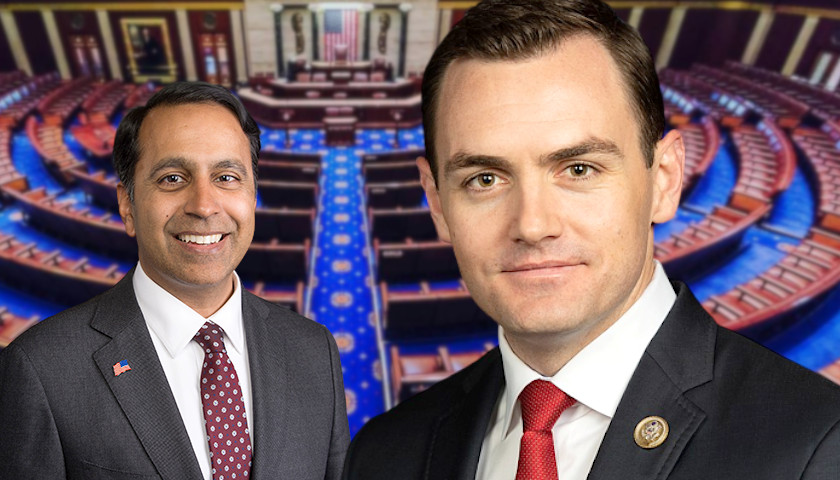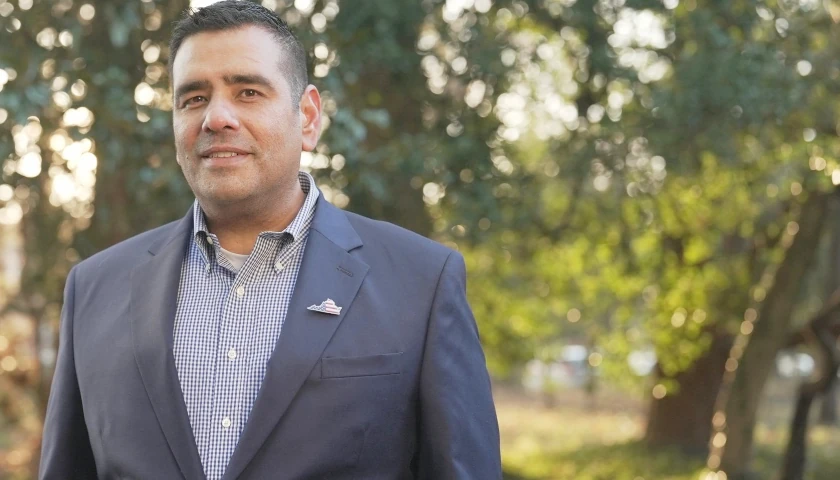A bipartisan group of federal lawmakers this week filed legislation in the House of Representatives to ban the TikTok video-sharing application nationwide.
Congressmen Mike Gallagher (R-WI-8) and Raja Krishnamoorthi (D-IL-8) submitted their bill to the House of Representatives, while Senator Marco Rubio (R-FL) introduced companion legislation in his chamber. They call their measure the Averting the National Threat of Internet Surveillance, Oppressive Censorship and Influence, and Algorithmic Learning by the Chinese Communist Party Act (ANTI-SOCIAL CCP Act). It is written broadly enough to possibly prohibit the use of other platforms operating under the influence of “a country of concern” such as China or Russia.
In a statement, Gallagher said he and his colleagues want to rid American devices of TikTok because American security agencies have alerted them to the app’s potential use as spyware to keep Americans surveilled. Media reports earlier this year cited instances of Beijing-based ByteDance, TikTok’s parent company, using the program to monitor specific Americans’ locations and acquire their data. The congressman also suggested the app manipulates its algorithms to shield users from news unflattering to the Chinese Communist Party (CCP).
“TikTok is digital fentanyl that’s addicting Americans, collecting troves of their data and censoring their news,” Gallagher said. “It’s also an increasingly powerful media company that’s owned by ByteDance, which ultimately reports to the Chinese Communist Party – America’s foremost adversary. Allowing the app to continue to operate in the U.S. would be like allowing the U.S.S.R. to buy up the New York Times, Washington Post, and major broadcast networks during the Cold War.”
While TikTok disputes that it passes Americans’ user information to Chinese government entities, many officials believe the CCP holds undue sway over the company. The CCP reportedly owns a share of ByteDance’s China-based TikTok counterpart Douyin and has formed an internal committee within ByteDance. Krishnamoorthi opined that these connections are sufficient to worry U.S. officials and justify the ANTI-SOCIAL CCP Act’s enactment.
“At a time when the Chinese Communist Party and our other adversaries abroad are seeking any advantage they can find against the United States through espionage and mass surveillance, it is imperative that we do not allow hostile powers to potentially control social-media networks that could be easily weaponized against us,” he said. “The bipartisan ANTI-SOCIAL CCP Act is a strong step in protecting our nation from the nefarious digital surveillance and influence operations of totalitarian regimes. Recent revelations surrounding the depth of TikTok’s ties to the CCP highlight the urgency of protecting Americans from these risks before it’s too late.”
The Biden administration is currently negotiating with TikTok to guarantee that no data from American users leave the United States. The company demurred at the news that legislators filed a bill to ban its video platform.
“It is troubling that rather than encouraging the administration to conclude its national security review of TikTok, some members of Congress have decided to push for a politically-motivated ban that will do nothing to advance the national security of the United States,” the corporation said in a statement.
Over the last two weeks, state governments of Alabama, Utah, Texas, South Dakota, Maryland, Nebraska, Tennessee, and South Carolina barred government agencies from utilizing the app. While some tech observers like Reason senior editor Elizabeth Nolan Brown believe that while government officials and well-known China critics could reasonably eschew engaging with TikTok, forbidding private use is not feasible or desirable. She views the move to do so as lacking a solid national-security rationale and incompatible with free expression.
“I think the harm both comes in Americans losing an outlet for camaraderie, artistic expression, idea dissemination, and entertainment and in the government getting away with yet more overreach,” Brown told The Wisconsin Daily Star via email. “It sets a precedent that officials need merely wave their hands around vaguely about national security — without actually proving anything — and it will justify authoritarian crackdowns on free markets and free speech.”
– – –
Bradley Vasoli is managing editor of The Wisconsin Daily Star. Follow Brad on Twitter at @BVasoli. Email tips to [email protected].








